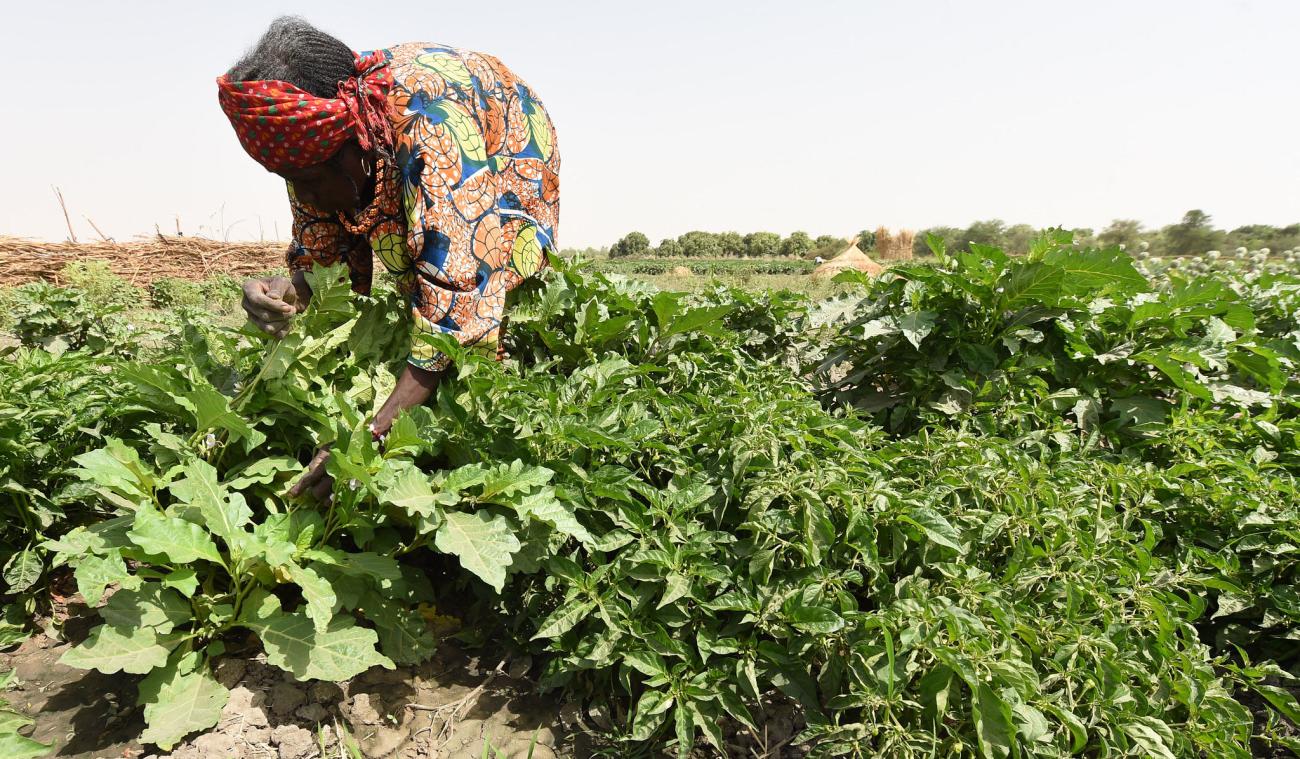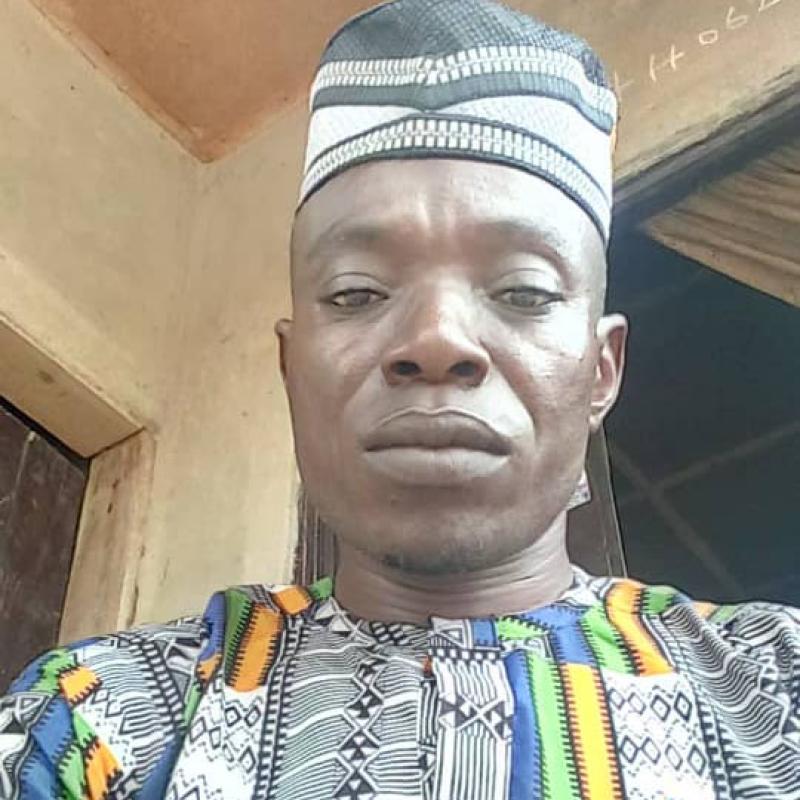Climate crisis in Nigeria: The UN fosters dialogue between farmers and cattle herders over shrinking land

“Through dialogue and training, we can reduce the violence and increase the chances that communities work together to deal with climate change,”
For many years in Nigeria, farmers and cattle herders have been in conflict over land rights. But the disputes have reached crisis levels in recent years, killing thousands of people and displacing many thousands more from their homes, left in ruins by attacks. More people have been killed in such disputes than by the Boko Haram insurgency.
One of the main culprits? Climate change.
Rising temperatures have shrunk the amount of land available for farming and grazing, leaving farmers and herders to fight over what’s left. Herders have had to change their transhumance routes—the paths along which they move cattle from one grazing ground to another on a seasonal basis. Farmers say they herders are intruding on their land.
“There are three major dimensions to this problem,” says Dr. Zebulon Suifon Takwa, UN Peace and Development Advisor, Nigeria. “The environmental dimension, reducing the effects of climate change. The gender dimension, as women are affected disproportionately, and can plan an outsized role in improving the situation. And the ethnic dimension, as herders and farmers typically come from different ethnic and religious groups.”
The UN works on the crisis from all three angles. One UN project sponsors training and dialogue in the Nigerian states of Benue, Nasarawa, and Taraba. The project is funded by the UN Peacebuilding Fund, and is implemented by the UN Development Programme (UNDP), UN Women, the Food and Agriculture Organization (FAO), and the Office of the U.N. High Commissioner for Human Rights (OHCHR).
“Through dialogue and training, we can reduce the violence and increase the chances that communities work together to deal with climate change,” says Takwa. “And we back up those efforts by promoting government action.”
The crisis between farmers and herders has only become more complicated due to the COVID-19 pandemic. The UN is working on this front, too. It has developed a UN Joint Strategy on COVID-19 in Nigeria, which lays out a plan how all UN agencies in the country can come together to support the government’s response to the pandemic. In addition, the UN worked with the government to prepare a national COVID-19 response plan, which points a way forward for all sectors of society to work together and confront the pandemic through partnerships, medical supplies, community engagement, coordination, analytics and innovation, and investments in recovery.
In working on both crises—the pandemic and the violent conflict—the UN is showing how seemingly disparate issues are actually related.
Working on both sides of the divide
Herders and farmers alike are providing income for their families and food for their communities. One way to reduce conflict is by training both sides to get the resources they need more effectively and without having to compete so much.
Herders need fodder for their cattle, and the UN is promoting alternative means of producing feedstock, which reduces the need for grazing land.
Farmers need land to grow their crops, and the UN is training farmers in agricultural techniques that are more efficient and produce good yields. One person who took part in these trainings is Bala Tsokwa, a cassava, yam, and rice farmer whose farm had been attacked and largely destroyed, leaving him to flee for safety with his family of six. Traumatized by the experience, he wasn’t sure he could return to farming, until the UN training restored his confidence.
Caption: In Taraba state, Bala Tsokwa saw his farm and home destroyed by attackers, leaving him to flee for safety with his family of six.
Photo: Okafor Christian
Together, these twin trainings create an economic model that generates less friction between farmers and herders. That means they have more time and energy to produce food and deal with climate change in the region.
Protecting women from violence
In Benue state, the project hosted more than a thousand dialogues on human rights and interfaith relations, reaching nearly 40,000 people. Among the topics of discussion were sexual and gender-based violence, and sexual exploitation and abuse. In the farmer-herder conflicts, women are especially vulnerable to violence—all the much more so during the COVID-19 pandemic, as tensions are higher.
The dialogues have led to increased reporting of incidents of violence. In tandem, the investigative capacities of the national and Benue state governments have been strengthened. Reporting and investigations are both important steps to stopping such violence.
Women clear the path to peace
Farmer-herder conflicts are typically between men, and so it seems only logical to put men together in dialogue. But what if instead you brought together the men’s wives, sisters, daughters, and mothers to talk?
That was the idea behind a women’s town hall in Taraba state facilitated by Hon Danjuma Patience Ngati, a former ward councilor and participant of a UN training on conflict prevention and response. The town hall brought together 80 women from the Hausa, Junkun, and Tiv ethnic groups, and cleared the path for a broader community dialogue the following week that included women, men, and youth. At that meeting, men and youth committed to solve their conflicts through dialogue and legal means instead of taking up arms. This is just one example of dialogues that took place in the state.
Also in Taraba, the project has prompted the state government to budget funds—for the first time ever—for the implementation of the UN’s Women, Peace and Security Agenda. These funds, and the inclusion of a line item for future budgets, commits the government to take steps to protect women.
Women leaders in Nasarawa state took the same approach to those in Taraba: facilitating dialogue amongst women first, then opening up the conversation to men and youth as well. Then they took an extra step, as a third dialogue again brought together women only from different ethnic groups. By starting and finishing the series with women-only dialogues, the project leaders in Nasarawa brought women deeper into the process of making peace. After the third dialogue, a dispute between farmers and herders turned violent and left several people dead and tensions running high. The women were discouraged but undeterred. They expressed their commitment to working for peace.
“We’re making progress, but sometimes there are setbacks,” says Ahunna Eziakonwa, UNDP Assistant Administrator and Director of the Regional Bureau for Africa. “The work is hard, and it takes time. But women are not giving up on the prospects for peace, and the United Nations will never give up on them. We believe that peace and prosperity in the Sahel is possible, if we accelerate joint action, together with Sahelian communities, to tackle the root causes of instability.” https://unsdg.un.org/latest/stories/climate-crisis-nigeria-un-fosters-dialogue-between-farmers-and-cattle-herders-over


